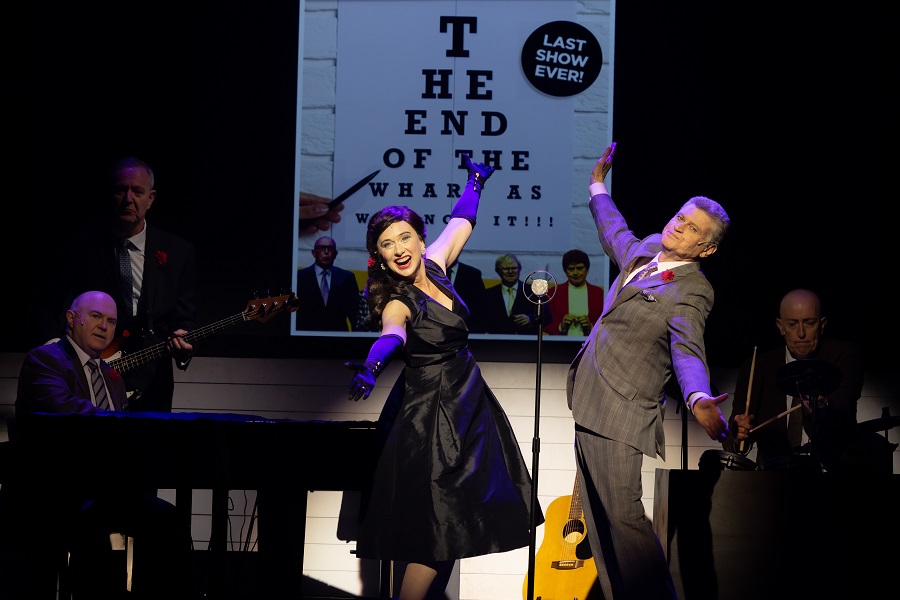
Revue / The Wharf Revue – The End of the Wharf As We Know It. At the Canberra Theatre, until November 2. Reviewed by JOE WOODWARD.
A standing ovation where the Canberra audience stood as one to show appreciation for the performance and for 25 years of high-quality satire and revue demonstrated the effect of the Wharf Revue on current and previous audiences.
Referencing much of their 25 years, Jonathan Biggins, Mandy Bishop, Drew Forsythe, Phillip Scott and David Whitney lived up to and exceeded expectations with this final season. The familiar characters were portrayed with incisive derision and pointed commentary. Some of the introduced personalities were not as successful. However, one knew the show was in great hands after a very clever prologue by Biggins’ Paul Keating.
In an evening of hilarity, Bishop as Jacqui Lambie and Forsythe’s Pauline Hanson presented particularly hilarious segments of comedy, song and political satire. While it is difficult to highlight these moments as standouts due to so much high-quality work, somehow their presentations will burn into memory for their succinct imagery and vocal qualities.
An imaginative scene depicting future prime-ministers when they were younger in the early 1980s featured The Angels’ song Am I Ever Gonna See Your Face Again along with “appropriate” responses from the characters on stage. There was even a strange poignancy as Bob Hawke, played by Forsythe, made his appearance to give advice to the budding Labor Party champions. This scene also gave opportunity for The Wharf to integrate most of their leading characters from the past 25 years.
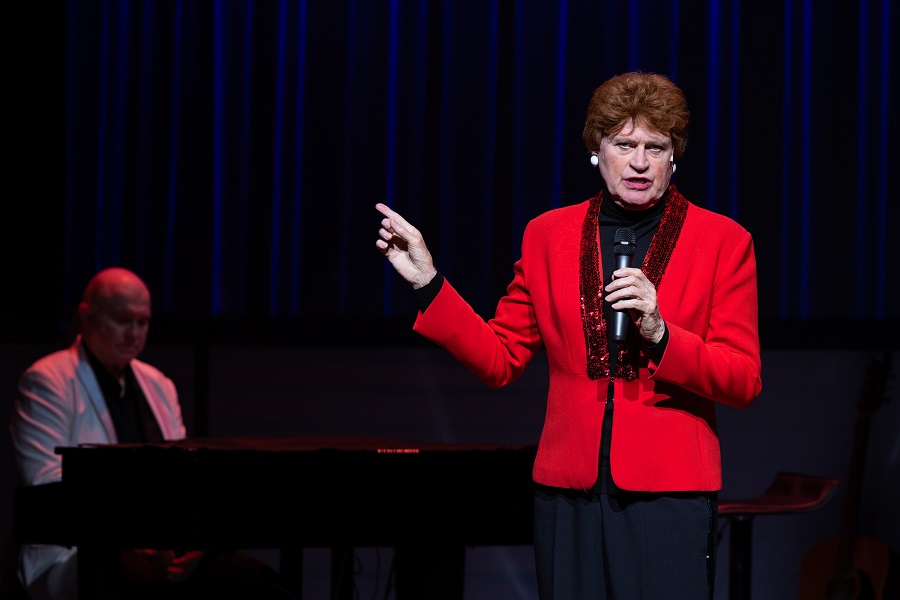
There is only one major disappointment with The Wharf Revue: the demographics it never reached. So few young people were in attendance and this has been a feature over the years. The brilliance of the writing and the performance level is virtually unmatched. Yet so much could be learnt by younger artists from seeing such quality on stage; so much could be enabled by simply raising the expectations of students to experience the relationship between culture, politics and pointed lampooning via performance. It seems so much training in theatre and performances emphasises the fear of offence and the fear of extremes. Writer-self-censorship is an issue.
The Wharf Revue has helped free the stage for expressions of dissent, criticism and cultural absurdities of all kinds. Yet it also has managed to incorporate a mainstream audience into its ventures. It is almost unique in this while many stand-up comedians struggle to find audiences for their own culturally critiquing voices.
I hoped the company could have found a way to share more of its process with younger generations and future performing artists and satirists interested in poking holes in the cultural edifice and society’s fragmenting fixtures.
So one must ask, where will the next standing ovations for satire and revue come from?
Who can be trusted?
In a world of spin and confusion, there’s never been a more important time to support independent journalism in Canberra.
If you trust our work online and want to enforce the power of independent voices, I invite you to make a small contribution.
Every dollar of support is invested back into our journalism to help keep citynews.com.au strong and free.
Thank you,
Ian Meikle, editor
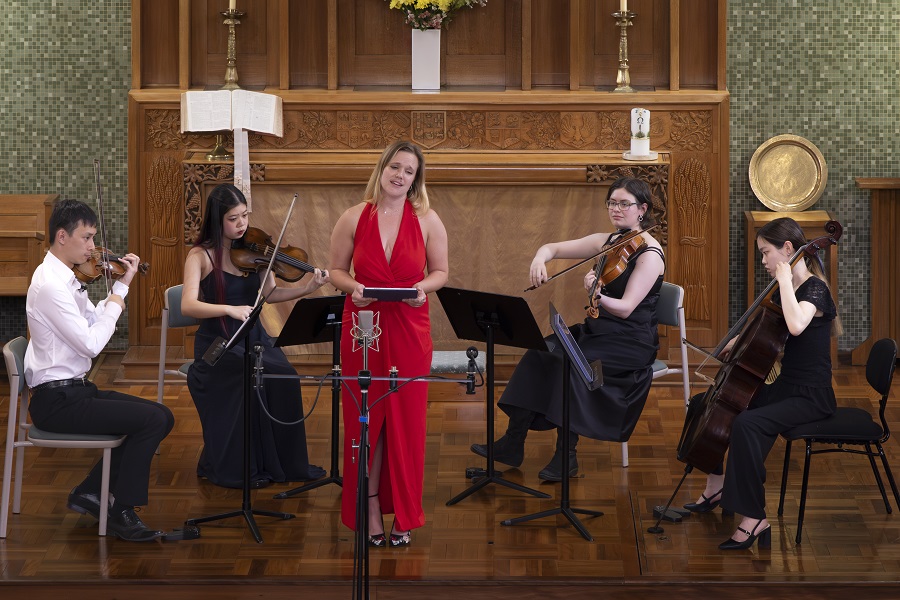
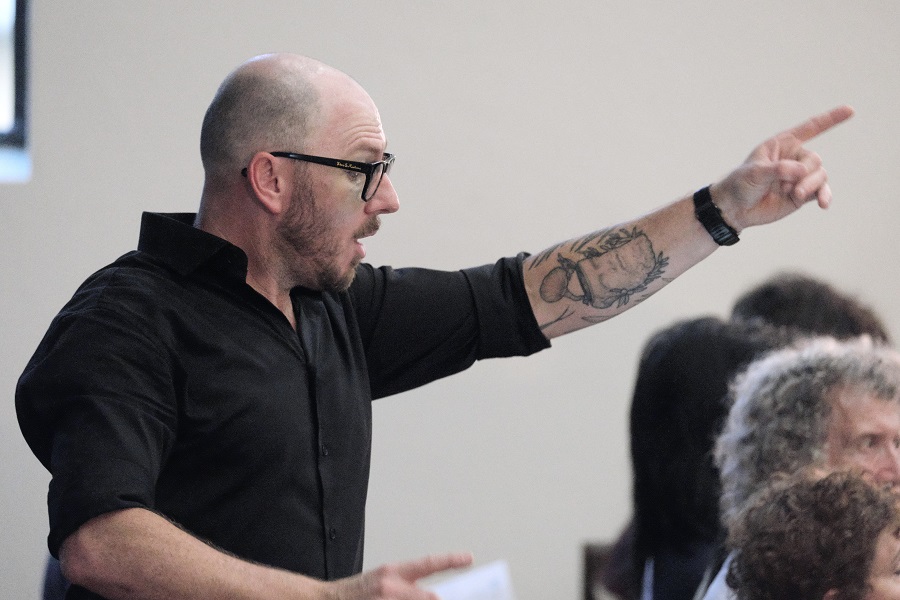
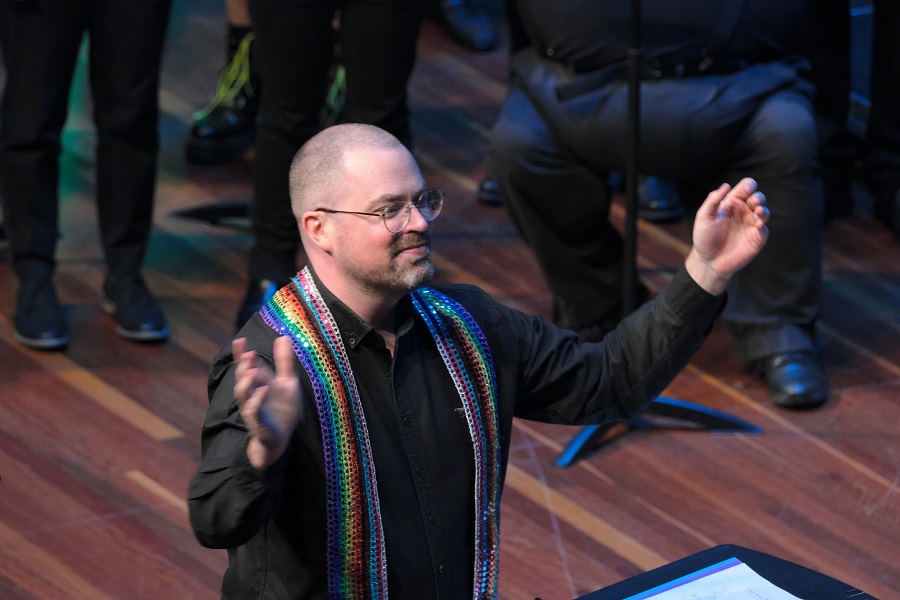

Leave a Reply